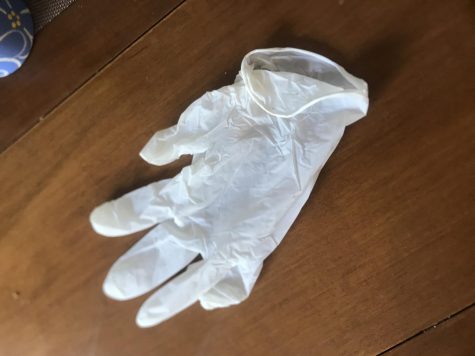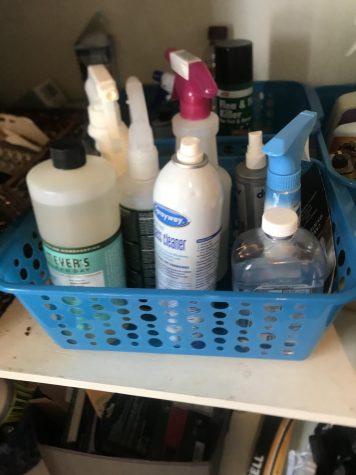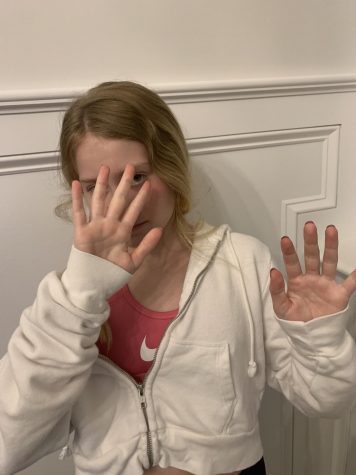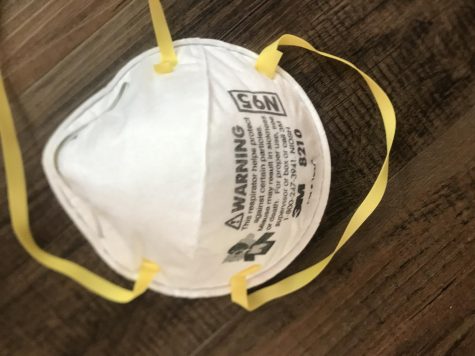Social Distancing
How does this new practice re-shape our lives?

Ever since COVID-19 entered the United States, there have been nationwide lock down and social distancing orders. However, in some states these regulations carry hefty fees and punishments if they are broken, while in other states there are no consequences at all.
Many people continue to go about their normal life, taking little to no precautions. Some celebrities, such as Kylie Jenner, promote social distancing guidelines to their millions of fans, but are not quarantined themselves. The age group found to be most likely to not quarantine themselves are adults and teenagers.

The effects of ignoring government regulations is greater than anyone could imagine. Symptoms of coronavirus often don’t show up for two weeks, and some who have it are entirely asymptomatic. Those who have no symptoms of the virus, but still have been infected with the virus, are carriers. Carriers can spread COVID-19 to hundreds of people, all while being unaware that they are sick. While most young, healthy teenagers are not at risk of dying from the coronavirus, they have the potential of spreading it to those who are more vulnerable, such as the elderly or those with pre-existing conditions.

Some teenagers are more vulnerable to COVID than they think. Teenagers and young adults who smoke have already-damaged lungs. Because Corona is a respiratory illness, already weak lungs leads to less of an ability to fight the virus. Another group of young people at higher risk are those with asthma. Asthma, a respiratory condition, weakens the lungs and makes it harder to fight off COVID. One out of every 13 Americans have asthma. That’s 7.7 percent of adults and 8.4 percent of children. There are a lot of other preexisting conditions many young people have which lower their ability to fight COVID-19.
Around the world, there have been cases of children dying from the pandemic. A 17-year-old in Lancaster, California died of COVID related complications. A 16-year-old girl in France was the first teen in Europe to die. These deaths, along with many others, highlight the fact that young people are not immune to the virus, as many still believe.
The social distancing guidelines include remaining at least six feet of space between yourself and the people around you at all times, wearing masks, not gathering in groups, and avoiding mass congregation. The CDC has asked people to quarantine themselves in their home, leaving only for necessities. Many across the nation have done this and have remained in their homes for weeks. However, 25% of Americans are still not self-isolating. This 25% of America is still spreading the virus, which causes the pandemic to last longer.
Hannah Rubin, a sophomore at Lafayette High School, has been self-isolating since March 13. Her biggest struggle has been not being able to access the things that she used to enjoy. She misses the ability to leave her house whenever. “Even if people don’t show symptoms of Coronavirus, they can still be carriers. A lot of people are silent carriers. Staying out just spreads it more.” Hannah shares the sentiment that many do: just stay at home.

Taylor Puia, a sophomore at Jamestown High School, has been quarantined since March 13th as well. She misses doing things with her friends. Both of her parents are still able to work. Her biggest wish is for everyone to just stay at home so the pandemic can be over by summer.
Cora Perkins, also a sophomore at Lafayette High School, has been quarantined since March 13 as well. The last time she left her house was two weeks ago to drop supplies off at her grandmother’s house. Currently, her mother has to work from home and her father can continue to work.
As long as coronavirus is still an issue, people will be out of work. Just last week, 6.6 million Americans filed for unemployment. This number will only continue to rise. Depression, anxiety, and suicide rates are all rising. The only way to end this is by staying home, quarantining, and limiting exposure to others. Until all Americans can do this, we are headed into a downward spiral of a ruined economy, stock market, and millions going hungry.





